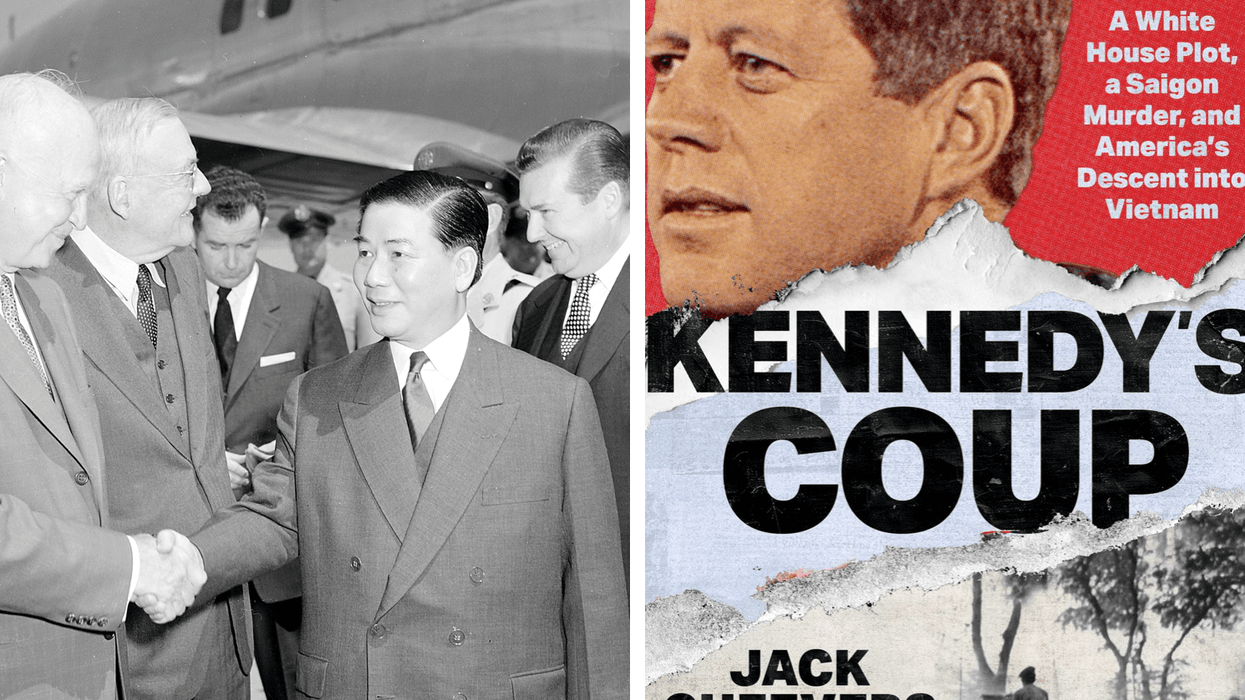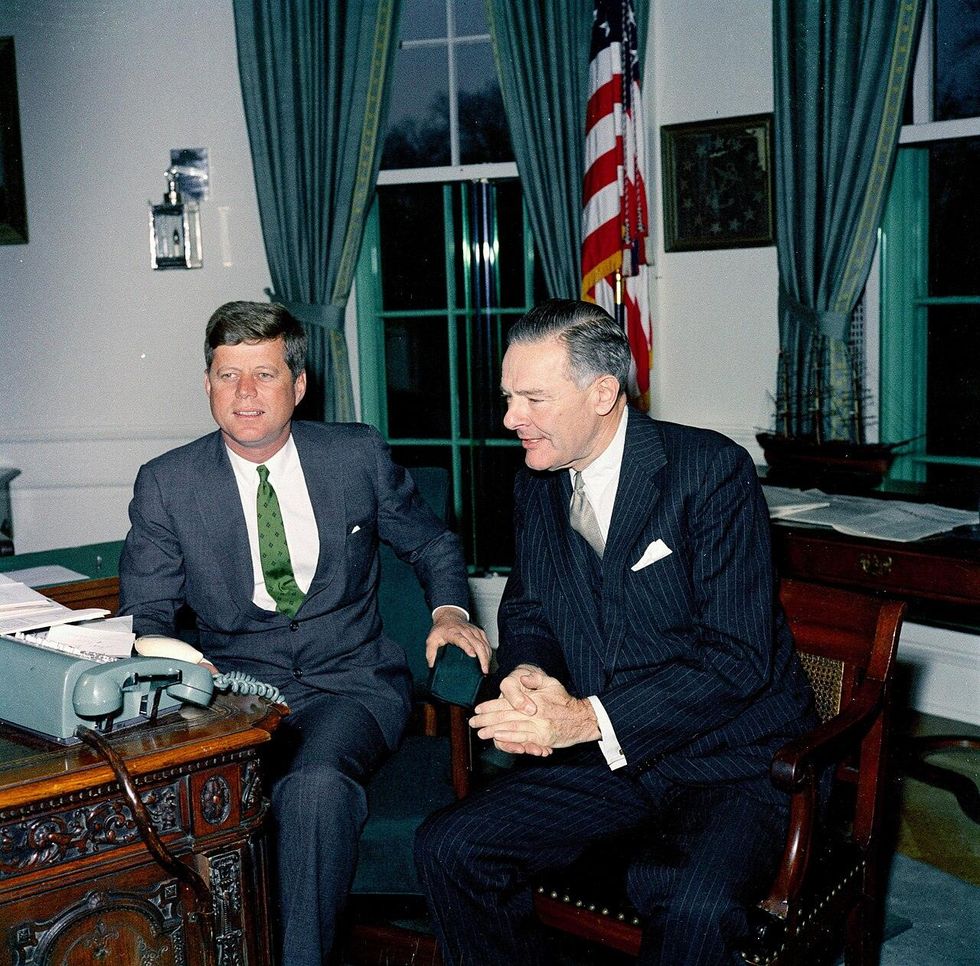After months of political turmoil, Italy is hurtling toward a turning point. As Kathleen Doherty noted in Foreign Policy, snap elections set to be held next month will likely bring a right-wing coalition into power, and two of the three parties in that bloc are led by Russia-friendly politicians.
That alone is reason enough for Ukrainian officials to be concerned. After all, “Italy has provided significant military equipment to Ukraine as it fights to stave off Russia’s invasion, hosts six U.S. military installations including the 6th Fleet, is the second-largest troop contributor to NATO’s out-of-area missions, manufactures the F-35 fighter jet, and is a key security actor in the eastern and southern Mediterranean,” Doherty wrote.
But perhaps the most important detail comes further down in the piece: Even in April, when momentum to fight back against Russia remained high, less than one in three Italians supported sending weapons to Ukraine. In other words, one of the countries most responsible for Kyiv’s military success to date is a democracy with a populace that is highly skeptical of sending lethal aid to help fight Moscow.
Further west, the picture is no less concerning for Ukraine, as Colm Quinn argued in Foreign Policy. A pair of controversial reports from leading Western organizations criticized Ukraine for staging military attacks from cities and possibly losing track of Western weapons, suggesting that there are “kinks in the characteristically smooth public relations machinery” that has defined Ukrainian President Volodymyr Zelensky’s global campaign.
“That the CBS and Amnesty reports were so quickly repudiated shows that the Ukrainian government and its supporters have not lost a step,” Quinn wrote, “but their very publication highlights the challenge Zelensky’s government faces in projecting a narrative that will keep its Western supporters engaged.”
And, of course, American voters are more skeptical of a perceived blank check to Ukraine than foreign policy elites. Morning Consult has been tracking U.S. voters’ views on the crisis since February, and support hit or tied all-time lows this week in two areas: Only 17 percent of American voters support sending more U.S. troops to Eastern Europe in order to help contain the war, and just 42 percent of respondents say the United States “has a responsibility to defend and protect Ukraine from Russia.”
Add to this the fact that midterm elections — which could hand power to Republicans with reservations about sending weapons to Kyiv — are fast approaching, and it starts to look like the united Western front against Russia could soon fray.
If Ukrainian officials are concerned about this trend, they’re hiding it well. Earlier this week, Zelensky advisor Mykhailo Podolyak reiterated Kyiv’s opposition to negotiations with Russia, saying that Moscow would just use a diplomatic ceasefire to prepare a new offensive.
“We will fight to the last Russian on the territory of Ukraine,” Podolyak said.
In other diplomatic news related to the war in Ukraine:
- Russia rejected a Swiss offer to act as a diplomatic mediator between Kyiv and Moscow, according to Al Jazeera. Citing Bern’s decision to join “illegal Western sanctions against Russia,” a Kremlin spokesperson said Thursday that Switzerland has “unfortunately lost its status of a neutral state and could not act either as an intermediary or a representative.” The decision is the first clear downside of Switzerland opting to join its Western neighbors in punishing Russia for its illegal invasion. Bern has often served as a go-between for even the bitterest of rivals, notably serving a key role in the diplomatic efforts that culminated in the signing of the Iran nuclear deal in 2015.
- On Monday, Zelensky said in an interview with the Washington Post that Western countries should ban all Russian travelers from entering their territory, arguing that they should “live in their own world until they change their philosophy.” “The population picked this government and they’re not fighting it, not arguing with it, not shouting at it,” Zelensky contended. The call earned praise from Finnish leaders, but U.S. officials were less enthused, with one telling the Post that such a ban would deny protections for dissidents and other persecuted groups seeking to flee Russia.
- China’s ambassador to Russia blamed the United States for the war in Ukraine, calling Washington “the architect and main instigator of the Ukrainian crisis,” according to Reuters. The diplomat also linked the situation in Ukraine to House Speaker Nancy Pelosi’s recent visit to Taiwan, saying that the U.S. goal in each crisis is to “revive a Cold War mentality, contain China and Russia, and provoke major power rivalry and confrontation.”
- In the Progressive, Phyllis Bennis of the Institute for Policy Studies called on progressive groups to demand an end to the war in Ukraine, citing the conflict’s disastrous effect on Ukrainian civilians and the risk of nuclear escalation.
“We have influence here in the United States, not in Russia, and it’s up to our movements to demand that our government take a clear stand to support diplomacy to end this devastating war. That means the United States should issue a public call for negotiations and an immediate ceasefire. It means making clear that the U.S.-imposed sanctions that are crippling the Russian economy will be lifted as soon as a ceasefire is in place. And it means saying in public what the United States has only whispered: that Ukraine will not be joining NATO in the foreseeable future.”
U.S. State Department news:
In a Thursday press briefing, State Department spokesperson Vedant Patel downplayed suggestions that the U.S. could follow Latvia in designating Russia as a state sponsor of terrorism, arguing that current U.S. sanctions are already having a major impact on Moscow. "The U.S. Government has already taken a number of significant and effective steps to respond to Putin’s war of choice, from export controls as well as sanctions and economic consequences as well," Patel said. "Our unprecedented sanctions are having a drastic impact on Russia."





 President John F. Kennedy and Henry Cabot Lodge Jr. in 1961. (Robert Knudsen/White House Photo)
President John F. Kennedy and Henry Cabot Lodge Jr. in 1961. (Robert Knudsen/White House Photo)










